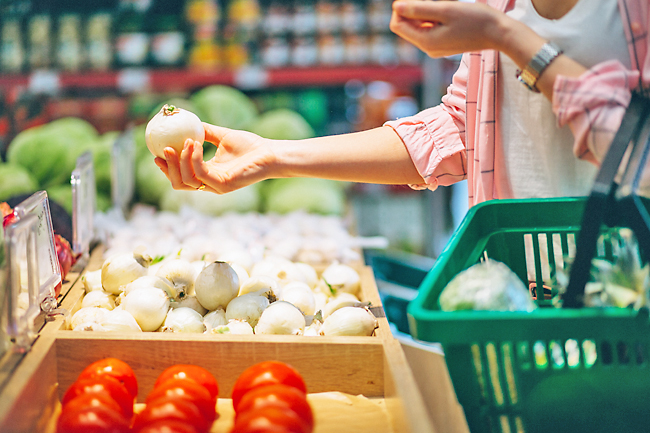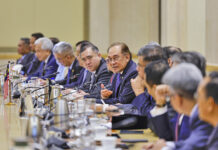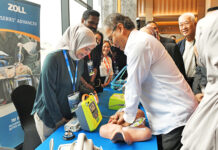Danial Norjidi
Brunei Darussalam, like other countries, is no exception to facing various challenges as a result of the COVID-19 outbreak and the unexpected political tensions that are currently impacting the world, the Department of Economic Planning and Statistics (DEPS) at the Ministry of Finance and Economy (MoFE) recently shared in a statement.
“Added to this is the situation of Brunei as a country that imports around 70 per cent of goods, especially goods from other countries,” it said.
DEPS highlighted some of the main factors that have driven up the price, with one factor being transportation and logistics costs.
It was shared that, according to Freightos Baltic Index Global Container Freight Index, since the COVID-19 outbreak, global transportation costs for 40-foot containers increased from USD1,342 in July 2019 to USD9,806 in January 2022.
“In addition, labour shortages, closure of business premises and manufacturing plants have led to reduced production and delayed delivery of goods, which have an effect on the overall increase in the price of goods.” Also mentioned were the rising prices of raw materials such as wheat and corn. “Russia and Ukraine are among the major producers of basic commodities such as wheat, corn and sunflower oil. Among the significant effects of these international geopolitical tensions is the increase in the cost of some food items such as sunflower oil and grains to 13 per cent in March 2022 with only a one per cent decrease in April 2022, according to the Food and Agriculture Organization (FAO) Food Price Index.”

Restrictions on the export of raw materials were also highlighted. Some of the largest exporting countries of basic food items such as wheat and cooking oil have begun implementing strategies to prioritise the domestic demand of their countries.
“Among them, India is currently restricting the export of wheat, while Indonesia is banning the export of cooking oil, including palm oil, to protect the interests of the domestic market and prevent the rise in prices of these commodities in their respective domestic markets.
Recently, Malaysia has also taken steps to restrict chicken exports in an effort to stabilise chicken prices in the domestic market. Measures to limit such supply will have an impact on import-dependent countries.”
DEPS also noted that labour recruitment costs were affected by the COVID-19 outbreak, where recruitment costs increased, including travel costs, quarantine and agent fees.
“This contributed to the increase in overall manufacturing costs and in turn affects the price of goods in the market. In addition, the shortage of supply of foreign labour as a result of travel restrictions also contributed to the increase in labour costs.”
The statement highlighted the impact on the price of basic goods such as chicken, vegetables. “The rising cost of raw materials, especially fertilisers, has affected vegetable prices,” said the DEPS.
“Meanwhile, the rising cost of chicken feed affected the price of chicken and eggs in the market. In addition, unpredictable weather conditions such as continuous rain, or droughts caused by global climate change have affected the total production of crops such as red onions, livestock and fishing resources and in turn affected the total supply and directly led to price increases in the market.” It was shared that supply chain sources such as country of origin or number of intermediaries and resellers before goods are sold in the retail market also have a role in determining the price of goods.
Touching on government efforts, the statement said, “In tackling this inflation crisis, among the initiatives implemented by the DEPS is to conduct monitoring activities on the prices of basic goods sold by a total of more than 350 grocery stores in the Sultanate.
“Information on these prices is updated weekly and published through the PenggunaBijak application, DEPS website and the media. This information allows consumers to compare prices, as well as find out the choice of goods available in the market.”
The items for which the prices were monitored were cooking oil, chicken, eggs, meat and agricultural products such as chillies, red onions and ginger as well as personal hygiene items including face masks, hand sanitisers and antigen rapid test (ART) kits.
Although the increase in the price of goods in Brunei was driven by uncontrollable factors affecting the global and regional situation, with price monitoring the government is striving to encourage the principle of transparency among merchants in the country, said DEPS.
“Information on the prices of goods in retail stores is easily available at one’s fingertips by downloading the PenggunaBijak application, which allows users to compare prices and choose products or brands that offer affordable prices.
“For DEPS, this initiative helps in ensuring that merchants do not take advantage in crisis situations to raise prices excessively or unreasonably.”
The statement highlighted a whole of nation approach, noting that the issue of price increases requires an integrated approach from the government with collaboration between various ministries, from the industrial sector and the public in jointly addressing and finding ways to reduce the impact of inflation.
“Entrepreneurs need to formulate strategies for the long term that are empowering, such as diversifying import sources and increasing production of local products. The public, especially consumers, also play a role in carrying out their responsibility by reporting any improper or unethical business practices to the authorities.
“The government will work with various stakeholders to identify any policies that need to be implemented to reduce the cost of living burden with the increase in inflation, especially for the less fortunate.
“Citizens and residents of the Sultanate are fortunate with the subsidies for petrol, electricity and rice that have long been extended by the government,” said DEPS in the statement, adding that this is unlike other countries where the increase in crude oil prices in the market has led to an increase in petrol prices and in turn increased the cost of living. “In this regard, the public need to appreciate the subsidies that have been extended by the government by using them prudently and not waste them.”
Globally and regionally, an increase in the price of goods is being witnessed, not just on the price of food but also the price of raw materials such as crude oil and raw material input for crops. This is not only a result of the effects of the COVID-19 pandemic, but is also due to geopolitical tensions internationally, as well as external factors such as climate change that causes unpredictable weather and affects food production.


















































